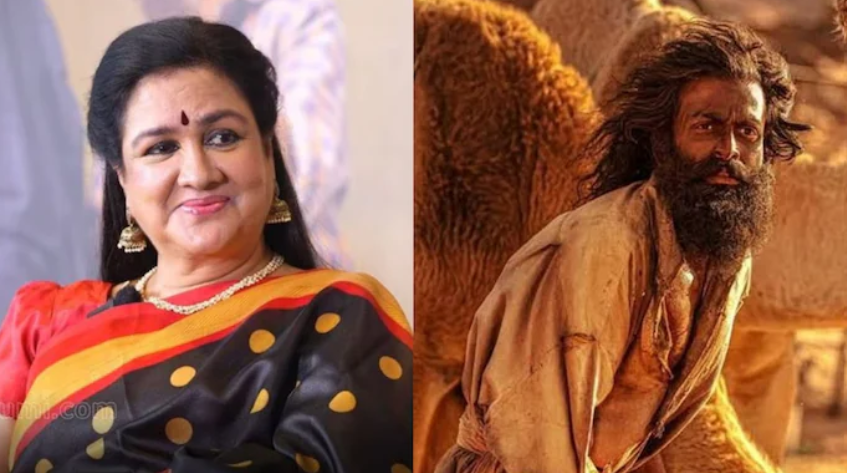Veteran actress Urvashi’s recent remarks about the National Film Awards are what everyone’s thinking but nobody’s saying out loud. In calling out the jury’s decision to award her the Best Supporting Actress title for Ullozhukku, a film in which she indisputably carries the emotional weight of the narrative, Urvashi has opened the door to a long-overdue conversation. Why is it that year after year, performers from certain regions are shunted to the margins, while others seem to glide through to national recognition on the strength of visibility and star power?
Her critique extended beyond her own award. She questioned how veterans like Kuttettan aka actor Vijayraghavan, who delivered a career-best performance in Pookkaalam, was also demoted to the supporting category. And why, she asked, did Shah Rukh Khan win a Best Actor award for Jawan, a high-octane commercial entertainer with little nuance in performance?
These aren’t rhetorical questions. They’re rooted in observable patterns that have come to define the National Film Awards in recent years. Patterns of opacity, inconsistency, and uneven representation.
A History of excellence, now undermined?
Traditionally, the National Film Awards were regarded as one of India’s most credible recognitions, where artistic merit trumped market forces, and regional cinema could stand on equal footing with the Hindi film industry. Malayalam and Bengali cinema, in particular, have historically punched above their weight, winning a disproportionate share of the Best Feature Film awards over the decades. That’s not bias. It’s simply a reflection of their consistent creative excellence.
But the 71st edition of the awards seems to mark a turning point. While Malayalam cinema did earn a few accolades, Ullozhukku for Best Malayalam Feature, Pookkaalam for Best Editing, films like Aadujeevitham (The Goat Life) and Kaathal—The Core, both critically acclaimed and widely considered among the year’s best, were entirely ignored. Instead, The Kerala Story, a film mired in controversy and political messaging, walked away with an award, sparking condemnation from Kerala’s Chief Minister.
Where does merit end and ideology begin?
The credibility question: It’s not about Shah Rukh Khan winning. It’s about how he won. The awards jury has not provided any breakdown of criteria, scoring, or even reasoning. There is no clarity on what constitutes a “supporting” versus a “lead” role. There is no public documentation of the jury process. There is no way for audiences, critics, or even fellow filmmakers to understand what values the awards are upholding.
That vacuum of transparency is what breeds suspicion: In a country as diverse as India, where films are made in over 20 languages, representation isn’t just a box to check. It’s a commitment. And it cannot be limited to technical categories. When performances like Urvashi’s, or films like Aadujeevitham, are pushed to the side while mainstream Hindi cinema claims the spotlight, it sends a clear message: visibility matters more than substance.
Are the awards still relevant?
It’s a question no one wants to ask outright, but Urvashi just did. With streaming platforms giving regional films a broader audience, and international festivals increasingly recognising Indian content, many filmmakers no longer see the National Film Awards as the highest honour. What good is a title when it’s handed out with little explanation and questionable logic?
Prestige is built not just on history, but on trust. Right now, that trust is eroding.
What needs to change?
Transparency: Publish jury criteria, scoring mechanisms, and category justifications.
Clarity in classification: Define what separates a lead from a supporting role, and stick to it.
Diverse representation: Ensure every regional industry is evaluated fairly and meaningfully.
Public accountability: When controversies arise, address them, not with silence, but with clarity.
Urvashi’s courage to speak out isn’t just a protest, it’s a demand for reform. And it’s one many in the film industry silently echo. If the National Film Awards are to remain relevant in an evolving cinematic landscape, they must shed their bureaucratic opacity and reclaim their moral compass.
Otherwise, we must ask: If these are India’s “National” Film Awards, then whose nation are they really representing?

